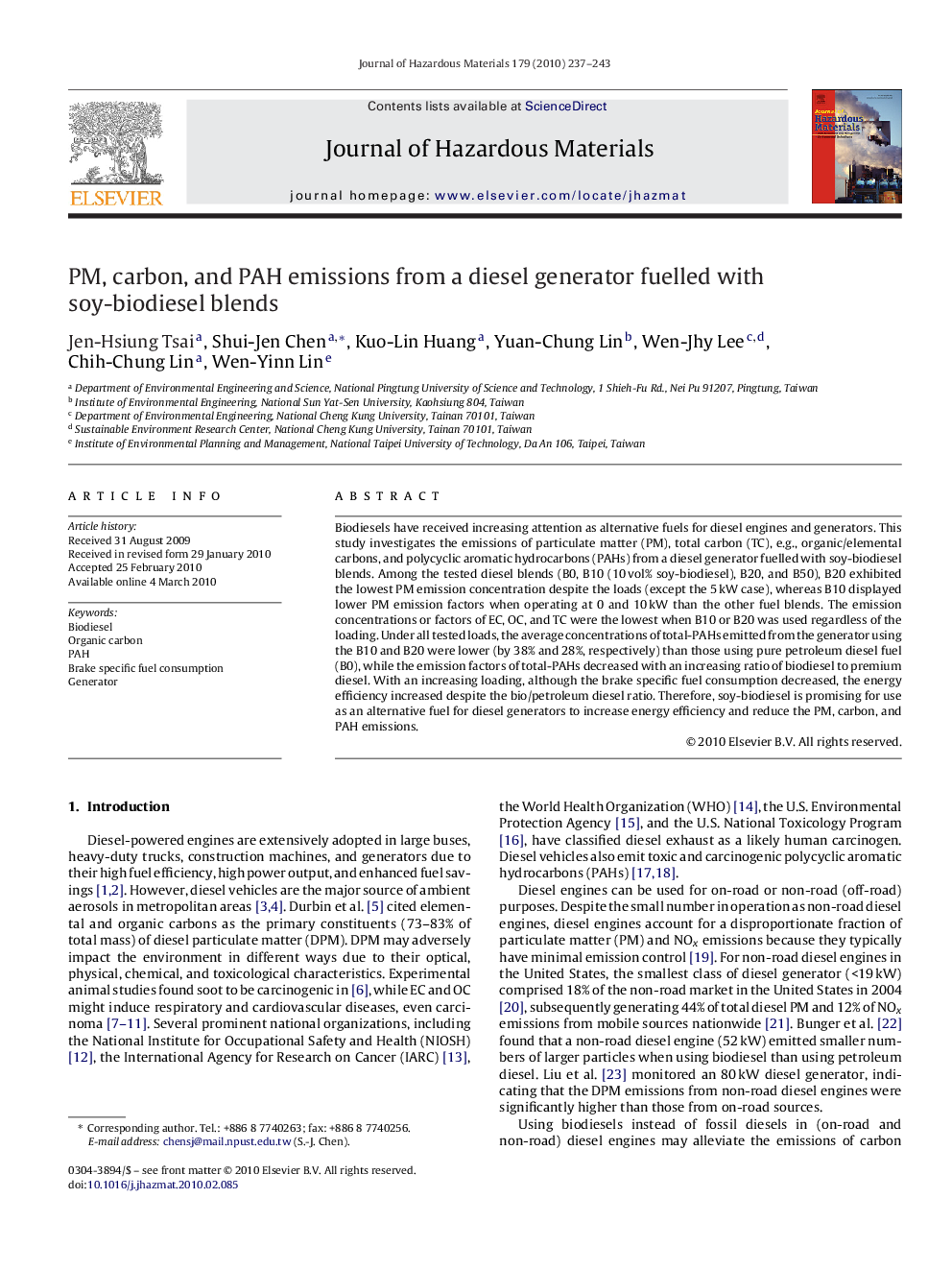| Article ID | Journal | Published Year | Pages | File Type |
|---|---|---|---|---|
| 580360 | Journal of Hazardous Materials | 2010 | 7 Pages |
Abstract
Biodiesels have received increasing attention as alternative fuels for diesel engines and generators. This study investigates the emissions of particulate matter (PM), total carbon (TC), e.g., organic/elemental carbons, and polycyclic aromatic hydrocarbons (PAHs) from a diesel generator fuelled with soy-biodiesel blends. Among the tested diesel blends (B0, B10 (10Â vol% soy-biodiesel), B20, and B50), B20 exhibited the lowest PM emission concentration despite the loads (except the 5Â kW case), whereas B10 displayed lower PM emission factors when operating at 0 and 10Â kW than the other fuel blends. The emission concentrations or factors of EC, OC, and TC were the lowest when B10 or B20 was used regardless of the loading. Under all tested loads, the average concentrations of total-PAHs emitted from the generator using the B10 and B20 were lower (by 38% and 28%, respectively) than those using pure petroleum diesel fuel (B0), while the emission factors of total-PAHs decreased with an increasing ratio of biodiesel to premium diesel. With an increasing loading, although the brake specific fuel consumption decreased, the energy efficiency increased despite the bio/petroleum diesel ratio. Therefore, soy-biodiesel is promising for use as an alternative fuel for diesel generators to increase energy efficiency and reduce the PM, carbon, and PAH emissions.
Related Topics
Physical Sciences and Engineering
Chemical Engineering
Chemical Health and Safety
Authors
Jen-Hsiung Tsai, Shui-Jen Chen, Kuo-Lin Huang, Yuan-Chung Lin, Wen-Jhy Lee, Chih-Chung Lin, Wen-Yinn Lin,
